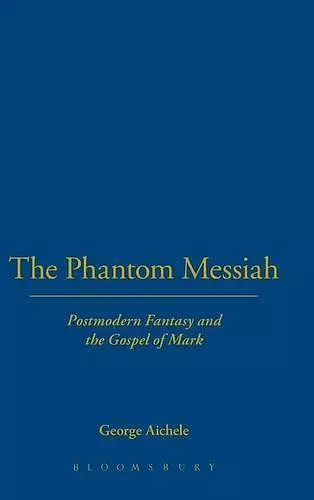The Phantom Messiah
Postmodern Fantasy and the Gospel of Mark
Professor Emeritus George Aichele author
Format:Hardback
Publisher:Bloomsbury Publishing PLC
Published:15th Feb '07
Currently unavailable, and unfortunately no date known when it will be back

Examines the Gospel of Mark as fantasy
literature
There is a growing awareness among biblical scholars and others of the potential value of modern and postmodern fantasy theory for the study of biblical texts. This fantastic reading is a "reading from the outside," inspired by the parable "theory" of Isaiah 6:9-10 and Mark 4:11-12.'[W]hen they saw him walking on the sea they thought it was a ghost (phantasma), and cried out; for they all saw him, and were terrified' (Mark 6:49, RSV). There is a growing awareness among biblical scholars and others of the potential value of modern and postmodern fantasy theory for the study of biblical texts. Following theorists such as Roland Barthes, Tzvetan Todorov, and Gilles Deleuze (among others), we understand the fantastic as the deconstruction of literary realism. The fantastic arises from the text's resistance to understanding; the "meaning" of the fantastic text is not its reference to the primary world of consensus reality but rather a fundamental undecidability of reference. The fantastic is also a point at which ancient and contemporary texts (including books, movies, and TV shows) resonate with one another, sometimes in surprising ways, and this resonance plays a large part in my argument. Mark and its afterlives "translate" one another, in the sense that Walter Benjamin speaks of the tangential point at which the original text and its translation touch one another, not a transfer of understood meaning but rather a point at which what Benjamin called "pure language" becomes apparent. Mark has always been the most "difficult" of the canonical gospels, the one that requires the greatest amount of hermeneutical gymnastics from its commentators. Its beginning in media res, its disconcerting ending at 16:8, its multiple endings, the "messianic secret," Jesus's tensions with his disciples and family - these are just some of the more obvious of the and many troublesome features that distinguish Mark from the other biblical gospels. If there had not been two other gospels (Matthew and Luke) that were clearly similar to Mark but also much more attractive to Christian belief, it seems likely that Mark, like the gospels of Thomas and Peter, would not have been accepted into the canon. Reading Mark as fantasy does not "solve" any of these problems, but it does place them in a very different...
""Imagine there's no heaven canon." One can by following Aichele's fantastic reading of Mark." Religious Studies Review, September 2009
ISBN: 9780567025814
Dimensions: unknown
Weight: 300g
272 pages